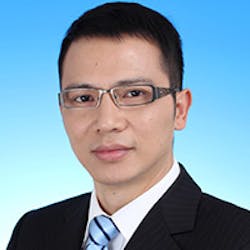Linear and torque motors are important components widely used in automated industrial machinery, such as machine tools, electronics and electronic assembly, flat panel displays, semiconductors and robotics. The market is varied, and there are lots of opportunities for specialized companies that want to dive into this industry.
The supply to the market for linear and torque motor motors in Japan is more consolidated than that of any of the other regional markets. The top 10 Japanese companies have so far dominated the domestic market, and it is very difficult for foreign companies to break into what are typically close, long-term, supplier-customer relationships. The situation is similar in Korea, where local companies such as Dongbu Robot, Justek and Robostar hold top positions.
From an industry viewpoint, the supply to the market for linear and torque motors is concentrated in dedicated industries. For instance, some motor companies have a particularly strong focus on supplying particular industry sectors, such as machine tool, flat panel and semiconductor machinery.
The supply is more fragmented in developing markets, however. The linear and torque motor market is well established in Western European countries such as Germany, Italy, Switzerland and the Benelux countries, but is less so in the fast-growing markets of Southeast Asia, Eastern Europe, the Middle East and Africa.
The supply to the market in China is particularly fragmented; a variety of motor suppliers and brands from around the world are trying to capture a piece of the Chinese market. At the same time, local companies have also increased their share. Shenzhen Han Motor Technology and Harbin Tech Full Electric currently lead Chinese companies in the linear and torque motor market. There is still huge potential for growth with both local and international suppliers.
Supply to the EMEA linear and torque motor market is more fragmented than that of the U.S. market, with a growing number of suppliers addressing it. One reason might be that there are various suppliers scattered throughout Europe, and many of them have expertise and knowledge regarding certain dedicated industries.
Components or solutions?
Linear and torque motor products require a high degree of engineering support, which is in part due to the high level of customization required by machine builders, particularly when motors are bought in component form. As a result, the companies that have technical engineering support, customer knowledge, industry familiarity and experience also have market advantages.
To maintain their positions in the market, many of the indigenous manufacturers of linear motors focus on service and providing complete, custom solutions in their respective domestic market. For instance, companies in Germany, Switzerland, Benelux and Italy have regained leading positions in their respective domestic linear and torque motor market because they understand more about the industries and their local customers.
Manufacturers from low-cost regions, such as China and Taiwan, are becoming active in the EMEA market, mainly offering standard catalog components, modules and systems. Lacking local engineering support and local knowledge, these companies have not competed in the market for complete actuation solutions in EMEA in recent years. Many of them depend on the local distributors and system integrators to help with the solutions.
But Chinese and Taiwanese companies have substantial advantages in their home markets. They are gradually switching from supplying components to providing complete linear and torque motor systems (with the help of local engineering teams). There may be significant changes to a market if a company holding a substantial market share changes the design of a product from component-based to either modules or systems, enabling them to provide larger volumes of standard products and charge a premium for engineering design and assembly.
Overall, there are various business options for the linear and torque motor suppliers. They can choose partners/distributors to enter a growing regional market, provide specialized products or solutions for dedicated industries, or even acquire an established brand. Conversely, they could even be acquired by other companies.
>>Wilmer Zhou, [email protected], is senior analyst for industrial automation at IHS.
About the Author
Wilmer Zhou
Senior Analyst, Industrial Automation, IHS

Leaders relevant to this article:
